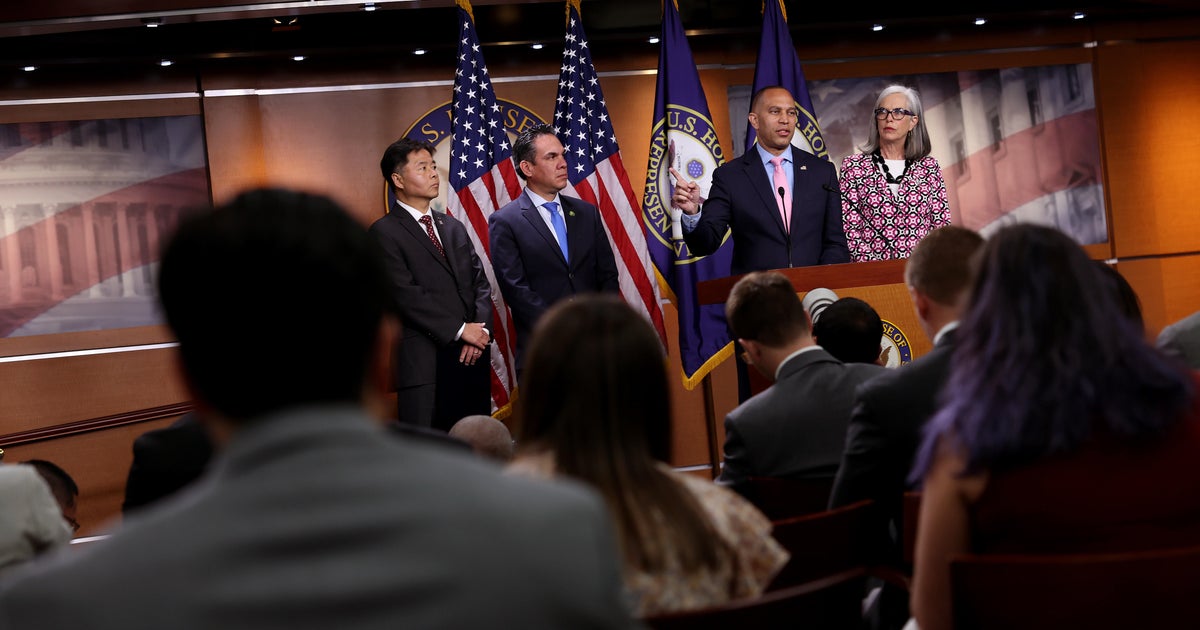As Congress limps toward government shutdown, some members champion punitive legislation to prevent future impasses
One idea is for Congress to cut off its own pay.
Another would require the U.S. House and Senate to work continuous seven-day work weeks until a resolution.
As Washington barrels toward a possible federal government shutdown, some members of Congress are proposing and advocating for legislation to make federal spending impasses more painful — for Congress.
Though the bills stand little chance of becoming law before the looming Oct. 1 deadline to avert a federal government shutdown, members of Congress are championing the proposals, which they hope will help avert future last-minute spending negotiations.
"It's pretty straightforward. The basic element of our job is to govern," Rep. Abigail Spanberger, Democrat of Virginia, said. "If we are unable to fund the government, at the very least we shouldn't be getting paid."
In May, as Congress faced the prospect of a debt default, Spanberger and Rep. Brian Fitzpatrick, Republican of Pennsylvania, introduced the "No Pay for Congress During Default or Shutdown Act," which would block the pay of members of Congress if the public debt limit is reached or a federal government shutdown occurs.
On Wednesday, Rep. Angie Craig, Democrat of Minnesota, formally announced her own version of such a bill.
Other House members are scheduled on Thursday to announce the formal introduction of similar bills to strip Congress of pay during shutdowns.
Sen. James Lankford, a Republican from Oklahoma, has been seeking a vote on his own version of shutdown prevention legislation. His bill, dubbed the "Prevent Government Shutdowns Act of 2023," would prohibit Congress from taking a break or returning home if they miss a deadline to pass spending legislation.
"There are hard adult conversations [about spending] that need to happen," Lankford told CBS News. "But having a government shutdown and imposing hardship on other people is not the way to do it."
A pair of Democratic lawmakers representing Virginia have introduced separate legislation that would also prohibit Congress from recessing or shifting to other business if it fails to meet a deadline to pass its spending bills. Sen. Tim Kaine and Rep. Don Beyer, who collectively represent at least 100,000 federal workers, have dubbed their bill the "End Shutdowns Act." The legislation would also require Congress to revert to prior spending levels in the case of a shutdown to ensure federal agencies can still function.
"It's almost 'reverse leverage.' It takes away shut down as leverage," Kaine told CBS News. "And it takes away these hostage-taking techniques."
Beyer said the legislation would help Congress better focus as spending bill deadlines approach. He told CBS News, "Basically all our efforts should be to just find a resolution to this conflict and get our government funded."
As part of his advocacy for his legislation, Beyer on Wednesday released letters from some of his constituents who are worried about the prospects of a shutdown. One letter said there is concern about "families facing difficulty paying their rent, mortgages or other bills."
Another letter from a federal contractor in Virginia asked, "Do I borrow money or do I layoff my hard-working employees?"
The American Federation of Government Employees, which represents tens of thousands of federal workers, has urged Congress to be more aggressive about avoiding shutdown deadlines. Everett Kelley, the union's national president, said he's been urging his members to call Congress to advocate for an end to the impasse and new protections to avert shutdowns.
He told CBS News that 60% of Americans live "paycheck to paycheck. Just imagine payday with no paycheck."







